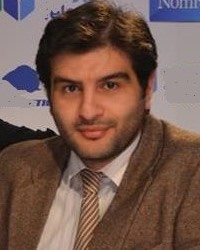Ginukh in Russia

Photo Source:
Anonymous
|
Send Joshua Project a map of this people group.
|
| People Name: | Ginukh |
| Country: | Russia |
| 10/40 Window: | No |
| Population: | 600 |
| World Population: | 600 |
| Primary Language: | Hinukh |
| Primary Religion: | Islam |
| Christian Adherents: | 0.00 % |
| Evangelicals: | 0.00 % |
| Scripture: | Translation Started |
| Ministry Resources: | No |
| Jesus Film: | No |
| Audio Recordings: | No |
| People Cluster: | Caucasus |
| Affinity Bloc: | Eurasian Peoples |
| Progress Level: |
|
Introduction / History
The Ginukh live in the village located in the "three corners" area where Georgia, Azerbaijan and Dagestan borders come together. The Ginukh belong to the Avar-Andi-Dido (Tsez) peoples in western Dagestan. They speak their own language, Ginukh, but also speak several of the languages of the region.
In the Middle Ages, Christians evangelized Ginukh. In the 18th century, they converted to Islam. Yet, they also believe in magic and occult beliefs of the forefathers. They also believe in a spirit of nature and practice some animism.
What Are Their Lives Like?
These people work as cattle and sheep herders, beekeepers, and hunters. Fathers lead as authoritarian heads of the household; his wife manages the house. Men usually respect their wives and mothers. Village elders lead the Ginukh community. An Islamic mullah acts as judge of internal conflicts. The Ginukh maintain strong economic and political relations with the Republic of Georgia.
What Are Their Beliefs?
The Ginukh practice a blend of Sunni Islam and the occult, magic, nature worship, and animism.
What Are Their Needs?
The Ginukh need workers to share the gospel in their Ginukh language and culture.
Prayer Points
Pray for workers to translate the Bible and other resources into the Ginukh language and share the gospel with them.
Pray the Holy Spirit opens hearts to be receptive to the workers and the savior they proclaim.
Pray for disciple-makers to be raised up among the Ginukh who will take Christ's great name to others.
Pray for the establishment of a viable, indigenous and reproducing Ginukh church.